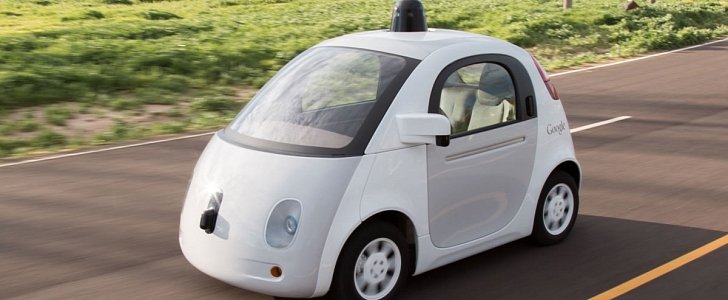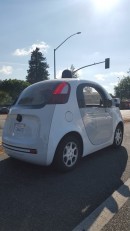Goodyear has associated with the London School of Economics and Political Science for a pan-European research project.
The tire manufacturer will fund a survey held on its ThinkGoodMobility platform, which focuses on how people will treat self-driving cars. Researchers from the London School of Economics and Political Science will aid their homologs from Goodyear in preparing the questions for the survey and analyzing their results.
Goodyear has announced that it will carry out this research project in 11 European countries, with both surveys and focus groups. The idea is to discover how humans feel about driverless cars, and how will these be treated on the road.
Researchers have an interesting dilemma on their hands, as humans might tend to be aggressive to the cars that can drive themselves just because they could. If you think that humans will treat robots kindly, just remember how some people talked to virtual assistants like Siri and Cortana.
Furthermore, humans are also the least predictable element of the entire self-driving car equation, and automakers will have to account for erratic behavior as they have to do with extreme weather. Most likely, driverless cars will be programmed to identify potentially dangerous situations on the road, and then steer clear of them for as long as possible.
In the case described above, a human could easily identify a dangerous road user using common sense, but a robot would have to be taught how to spot a car that might be driven by someone that is under the influence of alcohol, for example.
Furthermore, humans also have a set of “unwritten rules,” which govern interactions with other road users, and this “code” will have to be hardwired into the driverless cars.
According to a previous survey conducted by Goodyear with the aid of the London School of Economics, 88% of respondents from 15 European countries agreed that public roads have an “unspoken” set of rules.
From saying “Thank you,” or “Go ahead” by flashing the lights or the hazards (depending on the situation at hand and the country you are in), self-driving cars might have to learn more than just abiding the law and controlling a vehicle in any possible circumstance.
Goodyear has announced that it will carry out this research project in 11 European countries, with both surveys and focus groups. The idea is to discover how humans feel about driverless cars, and how will these be treated on the road.
Researchers have an interesting dilemma on their hands, as humans might tend to be aggressive to the cars that can drive themselves just because they could. If you think that humans will treat robots kindly, just remember how some people talked to virtual assistants like Siri and Cortana.
Furthermore, humans are also the least predictable element of the entire self-driving car equation, and automakers will have to account for erratic behavior as they have to do with extreme weather. Most likely, driverless cars will be programmed to identify potentially dangerous situations on the road, and then steer clear of them for as long as possible.
In the case described above, a human could easily identify a dangerous road user using common sense, but a robot would have to be taught how to spot a car that might be driven by someone that is under the influence of alcohol, for example.
Furthermore, humans also have a set of “unwritten rules,” which govern interactions with other road users, and this “code” will have to be hardwired into the driverless cars.
According to a previous survey conducted by Goodyear with the aid of the London School of Economics, 88% of respondents from 15 European countries agreed that public roads have an “unspoken” set of rules.
From saying “Thank you,” or “Go ahead” by flashing the lights or the hazards (depending on the situation at hand and the country you are in), self-driving cars might have to learn more than just abiding the law and controlling a vehicle in any possible circumstance.





